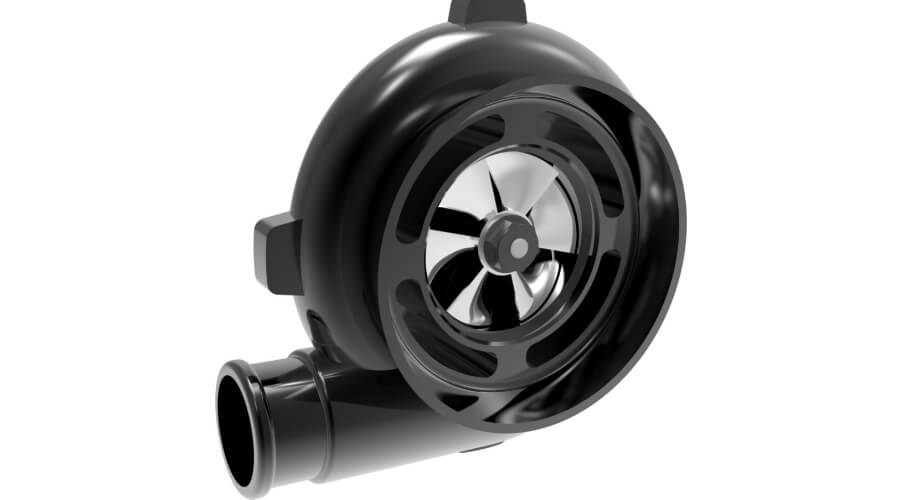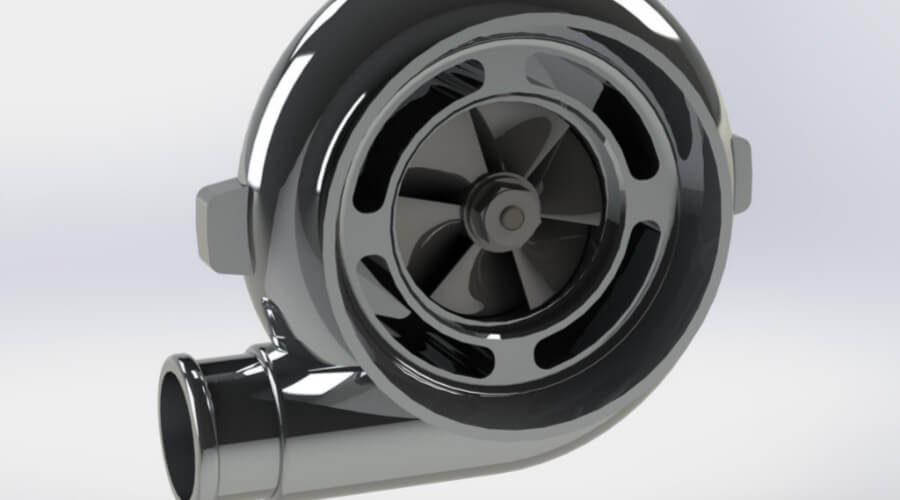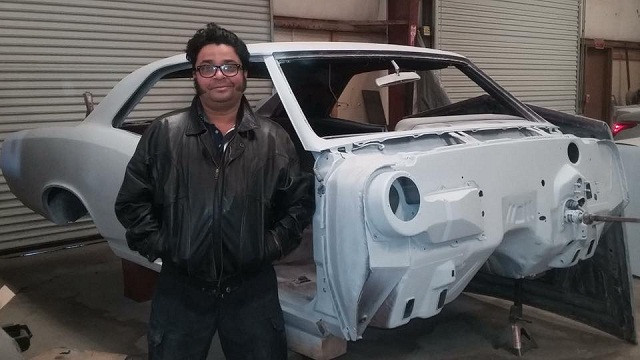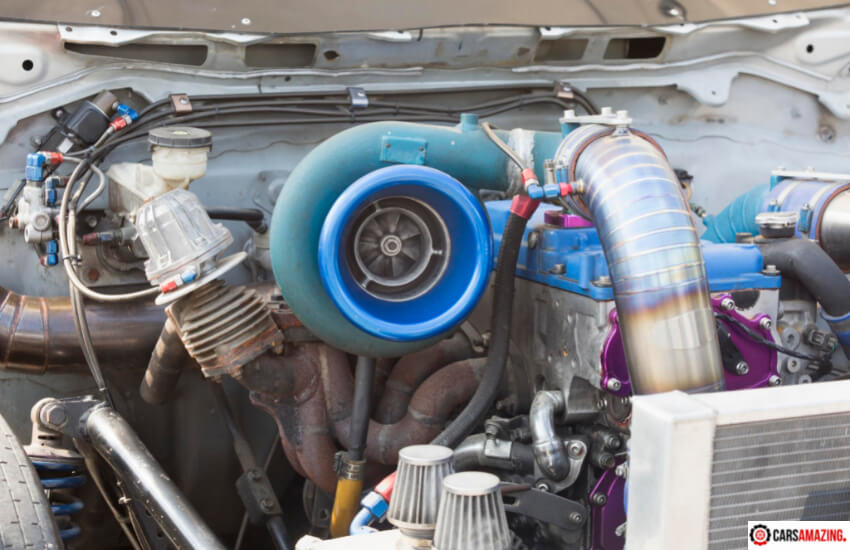Last Updated on December 25, 2022 by Leepu Da Maxim
The cost of parts and labor for small cars like the Toyota Corolla ranges between $2,000 – $4,000 on average for a turbo upgrade. However, the exact amount mostly depends on what type of turbo you want to install in your car.
Key Takeaways
- Adding a turbocharger to your car helps increase the power and strength of your vehicle, as well as increase the performance
- You can use low-end or used turbo kits for your Toyota Corolla and can cut the total cost by $2k
- It could take 2 – 15 hours to upgrade the turbo and the average labor cost per hour could range from $90- $120
- A turbocharged engine is more efficient and faster than a non-turbo engine and by installing turbochargers you will be able to save fuel
Cost Of Installing A Turbo In Small Cars By Make And Model

The cost of installing a turbo varies depending on the vehicle model, and thus it isn’t easy to estimate a general average for all models. Turbo kits for different models are priced differently and the time taken also varies by model, thus impacting labor costs.
Different mechanics will also charge various rates, and it is advisable to shop around with other auto shops to get a reasonable price. Below is a breakdown of the estimated cost of turbocharging small cars by model
| Vehicle Model | Time taken | Cost of parts (new turbo kits) | Cost of labor | Total cost |
| Toyota Corolla | 3 hours | $2500 | $650 | $3150 |
| Subaru Impreza | 2 hours | $1335 | $275 | $1610 |
| Ford F-Series Truck | 1.5 hours | $1361 | $390 | $1721 |
| Volkswagen hatchback | 5.5 hours | $2,500 | $600 | $3,100 |
| Subaru Forester | 2.7 hours | $2000 | $285 | $2285 |
| Audi sedan | 4 hours | $3,200 | $500 | $3,700 |
| Mazda Miata | 16 hours | $3800 | $1500 | $5,300 |
| Honda Civic | 2 hours | $1800 | $1000 | $2800 |
| Ford Mustang | 3 hours | $2400 | $900 | $3300 |
| Ford Focus | $1.5 hours | $1500 | $500 | $2000 |
From the table above, it is evident that the cost of buying and installing a turbo varies depending on the model. Always consult with different local mechanics to get a quotation within your budget. If you’re looking to cut costs on the turbocharger, we recommend buying an aftermarket part or low-end parts, which will reduce costs by almost a thousand bucks.
How Does A Turbo Work?

Theoretically, a turbo is a hot pump that forces more air into the engine, generating more power and improving performance by cutting emissions and reducing fuel consumption. The turbo is mounted between the exhaust pipe and manifold in the exhaust system. When the exhaust gas exits the engine, it drives the turbine, which turns the compressor, thus pulling in air and compressing it.
The turbocharger comprises two main parts: the compressor and the turbine. The turbine consists of the turbine wheel and housing. The turbine housing’s main job is to guide the exhaust gas into the turbine wheel. The energy from the exhaust gas turns the turbine wheel, thus allowing the gas to exit through an exhaust outlet area.
The compressor functions opposite the turbine; the compressor wheel is attached to the turbine by a steel shaft. As the turbine turns the compressor wheel, the high-velocity spinning draws in air and compresses it. The compressor housing converts the high-velocity, low-pressure air stream into a low-velocity air stream through diffusion. This compressed air is now pushed into the engine to allow it to burn more fuel and produce more power.
What Are The Benefits Of A Turbocharged Engine?
If you love speed and performance on your vehicle, then a turbo will be an exciting addition for you. The most obvious benefit of a turbo is that it gives the engine more power due to air intake, resulting in a powerful ride.
A turbocharged engine is more efficient and faster than a non-turbo engine. If you use turbochargers, you are more likely to save fuel.
Another benefit of turbo engines is that they produce less noise than a regular engine because of their lightweight and smaller size. Turbo engines also work as additional silencers.
The last advantage of a turbo engine is improved fuel economy and reduced carbon emissions. These engines use exhaust gases to convert waste energy to use engine power. It is safe to say that turbo engines are environmentally friendly.
Difference Between A Turbocharger And A Supercharger
In your search for the right turbo for your car, you must have come across superchargers and wondered what’s the difference and which is better. A supercharger is an air compressor used to increase the pressure or density of air that enters the engine, thus providing more oxygen for combustion. Turbochargers capitalize on the energy that would have been lost in the exhaust and are powered by a turbine in the exhaust stream.
Both turbochargers and superchargers can increase fuel economy and power, and each has its pros and cons.
Pros Of Turbochargers
1. They offer more horsepower, thus allowing smaller engines to produce more power in relation to their size
2. They offer better fuel economy
3. They are more reasonably priced than superchargers
Cons Of Turbochargers
1. They are prone to turbo lags: providing less boost at low engine RPM
Pros Of Superchargers
1. Provide good power at low engine RPM without lag
2. They increase engine horsepower
3. They can produce more energy in a short time
Cons Of Superchargers
1. Reduced efficiency because they use engine power to produce power
2. They are louder than turbochargers
Frequently Asked Questions On Turbocharger Installation
1. How Much Horsepower Does A Turbo Add?
You can get an extra 50-110 horsepower by adding a turbo to your car. Turbochargers improve your vehicle’s speed and performance by providing extra power output and torque on horsepower.
2. Can You Put A Turbo In Any Car?
You can add a turbocharger to any car except electric ones. Most naturally aspirated engines can allow a turbocharger installation regardless of whether they are powered by diesel or gasoline.
3. Is It Illegal To Turbocharge A Car?
Turbocharging is the modification of the engine, and it is not illegal in any state. However, these modifications impact the vehicle’s emission and speed. Always consult with your state laws to find out the limits, as this will help you not break any rules.
4. Can I DIY A Turbo Installation?
Some sites sell some DIY turbo kits and encourage drivers to try them. If you are not a trained mechanic, do not risk or try it. Modifying the engine is a complex process, and one wrong move could damage the whole machine. The process isn’t only about installing the turbocharger; you need to tune the engine and calibrate the fuel injectors to match the increased airflow from the turbocharger.
Conclusion
The cost of turbocharging a car varies depending on your vehicle and the resources. The cost can range between $500-$5000. It is advisable to find a balance between getting a low price and ensuring everything is done to perfection. You don’t want to spend your money on something that won’t work as it should.
Reference:
https://www.quora.com/How-much-does-it-cost-to-put-a-turbo-in-a-small-car-like-a-Toyota-Corolla
https://cars.usnews.com/cars-trucks/toyota-corolla-competitors

Hi, I’m Leepu Da Maxim , a dedicated car enthusiast with over 10 years of experience in this field, and I’m thrilled to share my passion and expertise with fellow car enthusiasts like you. My journey began in my hometown West Jordan, Utah, where my fascination with the mechanics and design of cars sparked at a young age. Over the years, this passion has evolved into a commitment to providing accurate, insightful, and engaging information about all things automotive through CarsAmazing .

